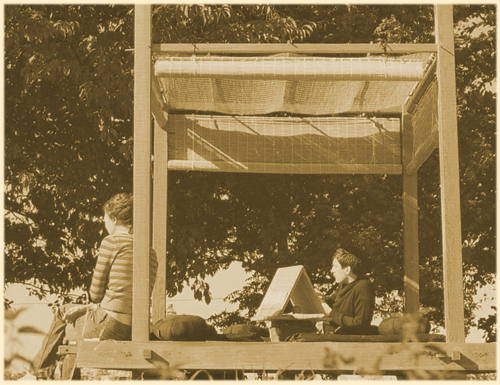In mediaeval Japan, haiku developed out of an almost unique Japanese custom when small groups assembled to compose chains of verses — 3-line verses of 5-7-5 Japanese sound-segments alternating with 2-line links of 7-7 sound-segments.
An admired poet was chosen as umpire and selected from the verses on offer the ones that he considered most appropriate using the principle of link-(to the previous verse)-and-shift (to a new situation in place, time and topic). Each participant was expected to honour the link he was capping, and put the success of the chain as a whole above any personal desire to shine.
Poetic quality was, however, at the mercy of the amount of sake that was drunk to overcome the participants' shyness.
In Britain, Alec Finlay's efforts to popularise "social composition" of poetry have proved popular with poets of all sorts of persuasions. Using his ingenious invention, The Renga Platform, he has led renku sessions in the open air, often inviting novice bystanders to take part.

In 2009–2010, Alec organised a renku project on a grand-scale, for the benefit of walkers in the Peak District. More than a dozen different poets contributed solo renku, each pertaining to a particular area of the White and Dark Peaks, which a walker might listen to and/or read as he/she was there (or as preparation for a visit, or afterwards at home). Details on http://www.alexfinlay.com.
